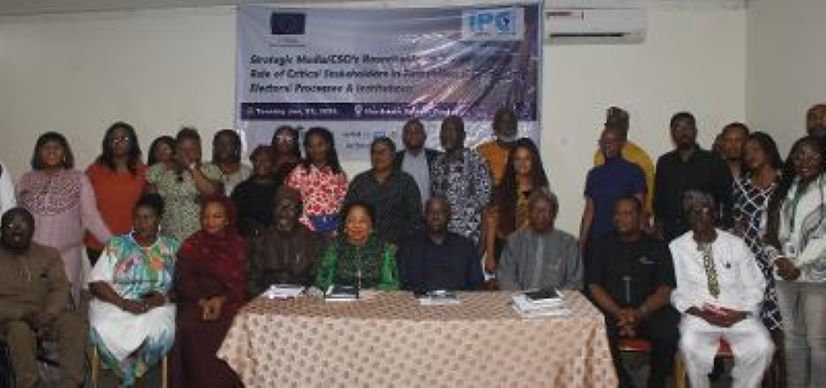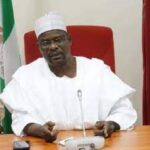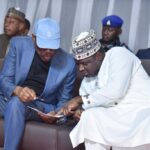By Stella Odueme
The 2023 General elections came with various challenges ranging from poor logistics leading to late arrival of materials, vote buying, under age voting, mal-functioning of some of the Biomodial Voters Accreditation System BVAS, among other.
As a result of these challenges, the extensive observations from both national and international observers partly reflected dwindling public confidence and trust in the electoral process.
Consequently, the European Union, Election Observation Mission (EU-EOM) report on the elections made 23 recommendations for improvement in the process.
Also, IPC’s media monitoring activity of 20 print/online media and INEC jsocial media over the past one year has also revealed some elements of negative perception by some citizens about the electoral processes.
Expectedly, while some commended INEC especially for the use of technology/BVASs at least, a larger number of Nigerians knocked the election umpire for what they termed gross inefficiency, especially in area of electronic transmission of results and update of its website.
Thus, as parts of efforts geared at continuous deepening of the process, IPC and its partner,
EU -support for Democratic Governance in Nigeria (EU -SDGN 11) the component 4: Support to media
held a one-day Media/CSOs Roundtable on ‘Re-Examining the Roles of Critical Stakeholders in Rebuilding Trust in the Electoral Processes & institutions on Wednesday in Abuja where observations and recommendations also emerged.
Chairman of this occasion, Prof. Okechukwu Ibeanu, a political scientist who is also a former INEC National Commissioner; canvassed continous stakeholders engagement to inprove on the conduct of elections thus sustain the nation’s democratic process.
While welcoming the participants, Executive Director of IPC, Mr Lanre Arogundade who was mindful of waning public confidence and trust in the electoral process. noted that; “In general however, the observations show that we, election stakeholders still have much work to do individually and collectively to rebuild trust.
“Therefore as we approach two off-cycle governorship elections in Edo and Ondo States this year 2024 and in view of the next general elections in 2027, this activity is deemed necessary to aid the process of developing strategic interventions that can contribute towards regaining public trust while promoting the delivery of free, fair, peaceful and credible elections in the country.”
He noted that the overarching framework of the project which began in 2022 is to strengthen the role of the media in promoting democratic governance through Fair, Accurate, Ethical and Inclusive Coverage of Electoral Processes & Elections in Nigeria.
He said the project also has the overall goal of supporting the consolidation of democracy in Nigeria with the media (broadcast, print and online media) playing pivotal roles in engaging the process through professional coverage and reportage of the electoral processes.
“The Media and journalists shall do more to hold accountable the critical stakeholders in the electoral process who each must play the roles expected of them for the country to have credible elections. which serve as the basis of public trust.
“Based on the provisions of the laws governing elections and the statutory and non-statutory regulatory frameworks, the accountability functions of the media include being factually accurate, avoiding biases, prejudices and hate speech; being conflict sensitive and refraining from being part of information disorder in this age of disinformation, misinformation and malinformation. “The media and journalists are also accountable based on the agenda setting and social responsibility theories of the media, among others.
Again, we may ask the question: whose agenda have the media been setting during the elections? Can we say, it is the public interest agenda?”
In his paper title; “Re-examining the role of critical
stakeholders in rebuilding
trust in the electoral processes &
institutions’
Development Consultant and Public Analyst, Mr Jide Ojo, harped on trust between INEC and electorate.
” Indeed, election is a prime factor in a democracy.
The objective
is to explore means of rebuilding public trust and galvanising the
support of critical stakeholders, especially the media and CSOs actors
as partners with INEC in enhancing the credibility of the Commission
through improved information and communication strategies.”
He lamented that ; `almost a year after the conduct of the last general elections, INEC is yet to
make public information about arrests, investigations and prosecution of
its staff that were alleged to be involved in compromising the integrity of
the elections.
• Likewise, no further update has been given on INEC ad hoc staff caught
with pre-filled result sheets during the November 11, 2023 governorship
elections in Kogi State as well as those who posted results of Polling Units
where elections did not hold on IREV in Imo State.”
Mr. Sam Olumekun, National Commissioner and Chairman of the Information and Voter Education Committee of INEC and Mrs. Mary Nkem, Director, Voter Education and Publicity of INEC spoke on the efforts of INEC to continue to improve assuring that more would be done on voters education.
Some of the recommendation from CDD are that;
`There is no gainsaying that the Media and Civil Society Organisations
need to assist INEC to bolster people’s trust and confidence in the
electoral management body.
“There is need for a symbiotic
relationship among the three institutions. However, INEC has a lot of
house cleaning to do ahead of February 3, 2024 re-run and bye-
election polls as well as future elections.
” This presentation is a pointer to areas INEC can do a quick fix to
enhance the trust and confidence of the citizens especially the
electorate.
” To ensure voters better understand the reasons behind delays or
technical hitches, for example, more proactive communication is
needed. This can allow INEC to set the agenda and explain the
reasoning for operational issues, rather than allowing others to set a
more politicised narrative which becomes difficult to counter.”
It also recommended that; ‘INEC should review its communication policy and train staff to support
proactive communication with voters. Doing so will help improve
transparency and accountability to citizens and reduce the risk of
social media rumours setting the narrative.”



